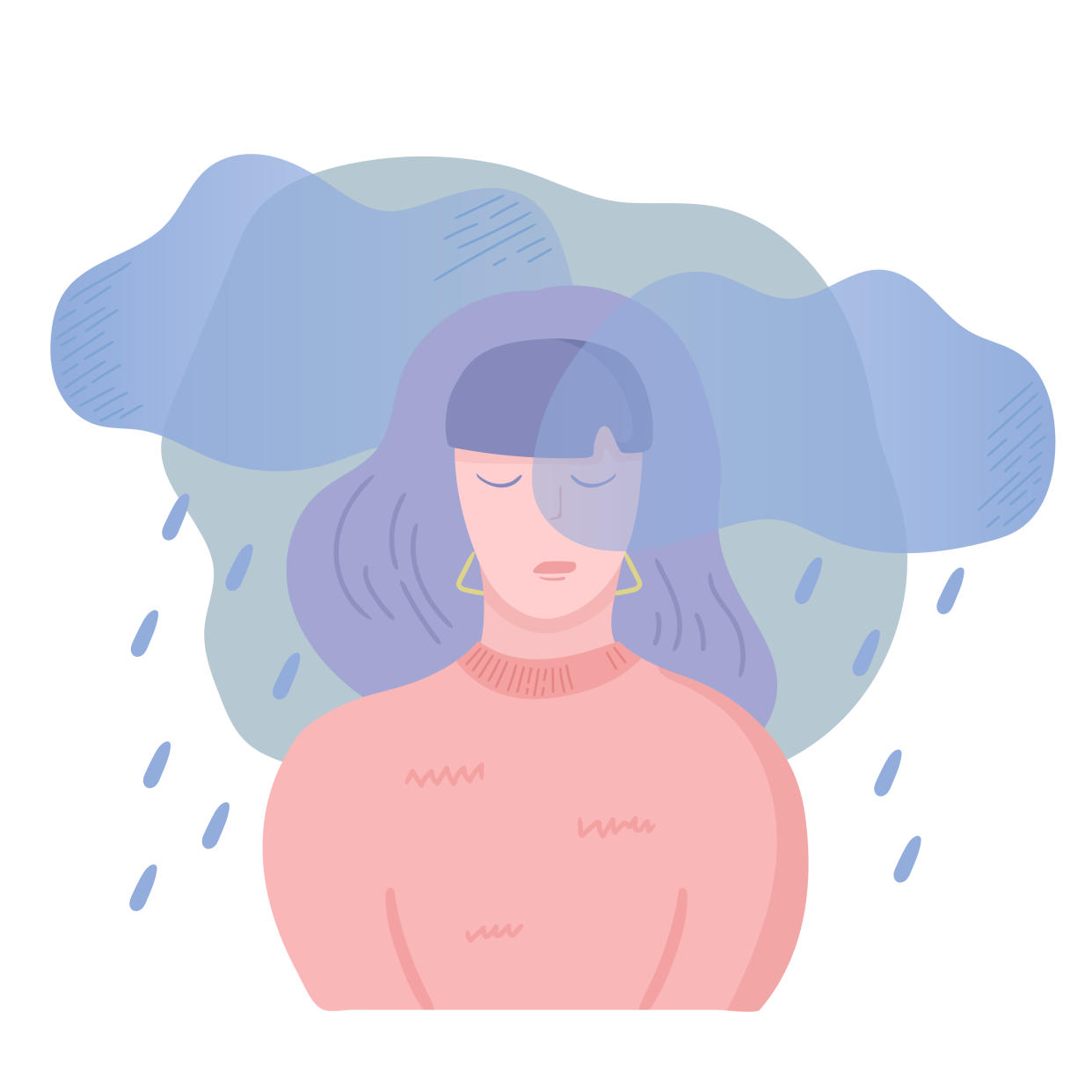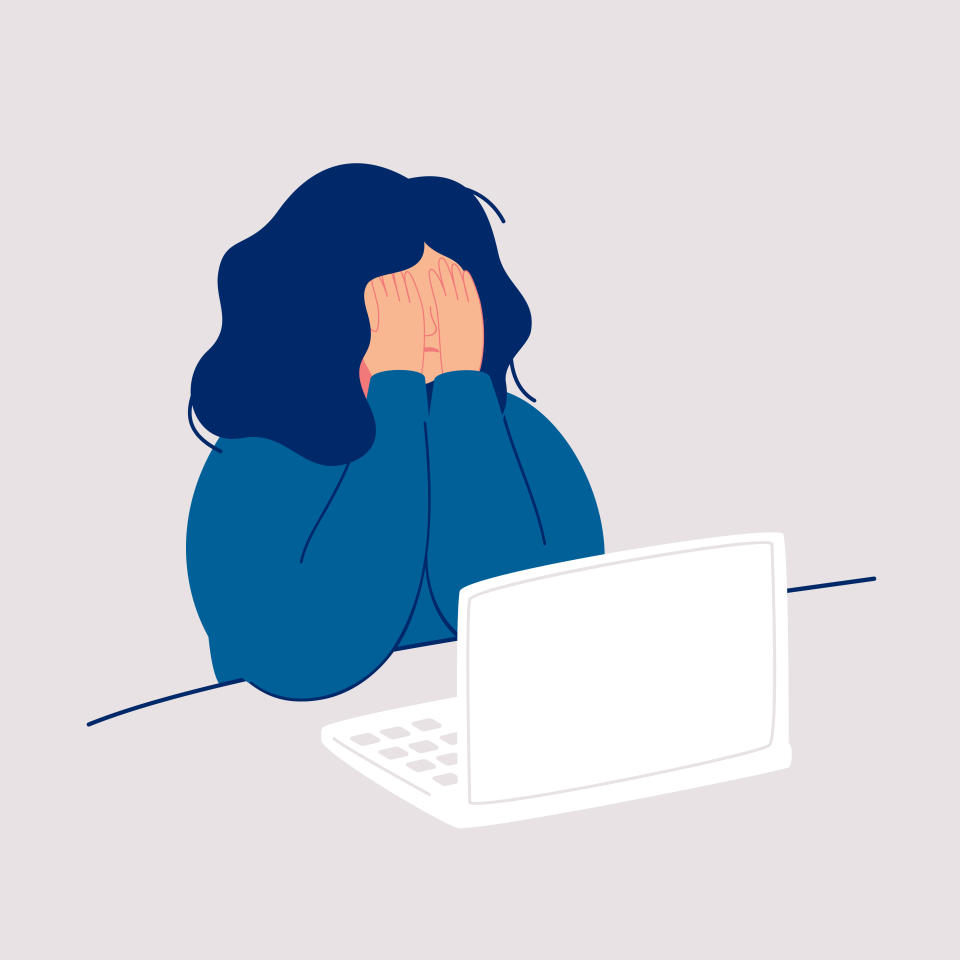Why are Asians scared of getting help for mental health issues?

The recently released Singapore Mental Health Study (SMHS) found that a large proportion of Singaporeans with mental health issues did not look for professional help, preferring to suffer in silence and not get treatment. In fact, in some cases it took as long as 11 years for some people with OCD (Obsessive Compulsive Disorder) to get treatment, and around four years before many people with either bipolar disorder or alcohol problems reached out for treatment.
When treatment options for mental health issues are now more accessible, why don’t Asians get treated? According to the report two things stop people getting treatment: Lack of awareness about the symptoms of mental health problems; and issues concerning the stigma related to admitting to having a mental health issue.
These days you can easily Google any and every mental health concern, but it seems that the stigma of admitting to having mental health issues remains.
READ MORE:
Mental health: Letters to my 20-year-old self (part 2)
Mental health: Letters to my 20-year-old self (part 1)
Why talking is so important for our mental health
The pursuit of happiness may cause depression
The Goop rush: why celebrities are racing to build wellness empires
An old-fashioned family
For Xin* her issues around mental health have been exacerbated by her family’s lack of understanding.
“I had separation anxiety as a kid,” she explains, “[and] I got sent to a temple to see a topless man in a trance, with his eyes rolled backwards in his head, shaking all over. I was so scared I cried and cried, but I also learnt that I shouldn’t show my real feelings and emotions. I learned to suppress everything because I had no desire to see that weird uncle again.”
Xin later had a major anxiety attack when she was 19 years old, and was shocked when the family doctor referred her to a mental health hospital. This is something that she continues to deal with, not wanting to talk about her mental health history with people in general. She’s also concerned that people might “use it against me” in a work environment, saying only her employer knows, but not her colleagues.
“I definitely think this is an ‘Asian thing’, it’s a taboo,” says Xin. “I see that my parents need some help [with mental health issues], but for them and the older generations mental health problems are not real. They try to scold you out of it, to ‘awaken’ you.”
Xin feels that it is a generational and lifestyle gap that is the cause of the disconnect, explaining that the older generations led harder, more rural lives, while her generation has to deal with a whole new range of issues including rapid technological change, busier lives, and cyber bullying. However Xin thinks that it’s not always the fault of the older generations, since they simply can’t sympathise because they don’t understand.

Workplace bullying
For Ethan*, a Singaporean creative, issues surrounding expectations, exploitation and general mistreatment at the hands of old-school corporate bosses have led him to suffer from ongoing mental stress and high blood pressure.
“I don't have the financial means to get professional help at the moment,” explains Ethan. “And after experiencing so much bullying and exploitation in the Singapore workplace, I’m just discouraged and feel disempowered. The question is: How do we overcome this?”
Although he’s feeling disenfranchised and depressed, Ethan believes that something can be done if more people get together and speak more openly about mental health issues, to try to make changes.
Workplace bullying was also what led Amy* to see a psychiatrist. She became depressed, leading her to taking up medication. “The depression immediately cleared up when I moved departments!” says Amy.
“I'm happy to discuss [my mental health issues] with friends and family if it comes up as part of a conversation, but don't share it on social media, etc, because I don't want everyone knowing my business.
“I’m not embarrassment as such, [it is] just because I like to have a degree of control! In terms of seeing someone for general maintenance rather than an acute issue, I think that's probably a great idea, but not something I've pursued.”
New business, new husband
For June*, a social entrepreneur in her early 30s, dealing with mental health issues is something that she is happy to talk about, but at the same time a bit concerned to be identified because she is aware of the general perception.
“Running my eco retail startup alone, I'm finding it tough to know how to balance when to switch off, feeling you are ‘enough’ and knowing when to take a break, plus the fear of not making your next meal or who to talk to for teething problems,” explains June.
The stress she’s been experiencing in starting her own business has also bled over into her personal life, affecting her marriage. “I find as of late, we fight a lot and when I trace it back, part of it stems from my anxiety and I’ve become very short-tempered,” says June.
“I am actually in the process of looking for a personal therapist as an outlet, and also for marriage counselling. I was initially very unwilling, because I couldn’t see why I needed to pay a stranger good money to listen to my ordinary problems.”
“But I’ve been listening to some podcasts by psychologists and I realised they can reveal certain new angles, questions and thoughts that my friends and family can’t provide. Also, there is less judgement when you speak to a stranger.”
While June is definitely interested in seeking professional health, she says it is very expensive. She is also not keen on telling her entire family about her interest in getting professional help: “Chinese families have their ‘face’ to maintain and are super judgemental.” But June has told her mother, and says she’s supportive.

The best thing I have done
Nan*, however, has had such a positive experience with therapy that she happily refers her therapist to her friends.
“I was never embarrassed about getting professional help. My friends only knew about my going to a therapist some time later, after I had had several sessions with her,” explains Nan. While she was happy to talk about it with her friends, however, she only told a few close members of her family. “My friends had a good impression about it overall and how much the sessions had helped me.”
According to Nan, who has been seeing a therapist since 2011, the professional help not only cleared up some issues from her childhood, but also really assisted her with dealing with starting her own business.
“It is the best thing I have done for myself as a business owner and probably one of the handful of things that has kept me going since I started in 2005.”
And if it weren’t for her therapist, her husband might have missed out.
“When I first started going for therapy, my then boyfriend - now husband - didn't like it because the sessions were pricey. But I told him if not for my therapist, this relationship would have ended some time ago, and since then he had not argued with me about it!”
* All the people interviewed for this article were quite open about their mental health concerns in private, but were worried about reactions from their families if they were identified publicly. To relieve their concerns, only first names have been used.
SINGAPORE
If you are struggling with thoughts or feelings about suicide, contact SOS on 1800 221 4444 (24hrs). If you have concerns about mental health issues, contact Emergency Helpline (IMH) on 6389 2222 (24hrs). For more information and help dealing with mental health issues, go to www.healthhub.sg/findhelp_servicesformentalhealthsupport.
MALAYSIA
If you are struggling with thoughts or feelings about suicide, contact Lifeline on (+603) 4265 7995 (24hrs). If you have concerns about mental health issues, contact the Malaysian Mental Health Association on (+603) 7782 5499. For more information and help dealing with mental health issues, contact the Befrienders on (+603) 79568144 or (+603) 7956 8145; or go to www.befrienders.org.my.
PHILIPPINES
If you are struggling with thoughts or feelings about suicide, contact Lifeline on (02) 8969191 or 0917 854 9191. If you have concerns about mental health issues, contact the National Center for Mental Health (NCMH) Crisis Hotline on 0917 899 8727 (USAP) and 989 8727 (USAP). For more information and help dealing with mental health issues, go to the National Center for Mental Health at ncmh.gov.ph.
READ MORE:
Mental health: Letters to my 20-year-old self (part 2)
Mental health: Letters to my 20-year-old self (part 1)
Why talking is so important for our mental health
The pursuit of happiness may cause depression
The Goop rush: why celebrities are racing to build wellness empires


